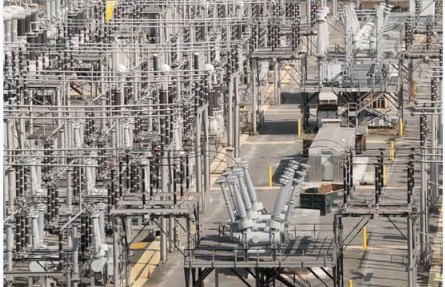Most Popular
-
TRF strategies: Using Peak Reliability to increase Availability
Power is one of the most critical components of infrastructure crucial for the economic growth and w.. -
Artificial Inteligence in Power System
A persistent and reliable supply of power is vital for the working of today's modern and advanced so.. -
Power Distribution planning for Smart Grid Applications
The modernization of electricity transmission and distribution system so as to maintain a reliable a.. -
Managing renewable energy resources with AI support
Natural concerns and shortage of assets are persistently pushing interest for sustainable power sour..
The predictive maintenance market is witnessing significant expansion, indicative of the growing emphasis on proactive maintenance strategies. Predictive Maintenance in the Energy Market is estimated to be valued at USD 1.79 billion in 2024, with projections indicating a rise to USD 5.62 billion by 2029, showing a robust CAGR of 25.77% during the forecast period (2024-2029). In this landscape, MCSA assumes a pivotal role, offering a cost-efficient and dependable means of monitoring motor health. Motor Current Signature Analysis (MCSA) stands out as a predictive maintenance technique utilized for evaluating the condition of electric motors. By scrutinizing the electrical current waveform, MCSA can identify irregularities such as mechanical faults, bearing wear, and insulation degradation. This non-intrusive approach is instrumental in forestalling unexpected downtime and expensive repairs by facilitating the early detection of potential issues, enabling timely maintenance interventions.
Electrical signature analysis operates on the premise that subtle shifts in a machine's operations impact the magnetic field of the connected motor, thereby influencing the supply voltage and operating current. This attribute makes Electrical Signature Analysis (ESA) equally applicable to generators. Employing an array of analytical methodologies, ESA furnishes a comprehensive overview of the entire powertrain, spanning from motor to transmission to load. With roots tracing back to 1985, this technique has garnered widespread adoption across diverse industries, aiding in mitigating the risk of machine failure, enhancing reliability and efficiency, conserving energy, and curbing costs. While ESA may not cover all aspects, its versatility addresses numerous critical functions, rendering it an indispensable condition monitoring technique for companies in the 21st century.
MCSA operates on the principle that alterations in a motor's operation influence its magnetic field, subsequently impacting the current flow. By scrutinizing various facets of the current signature, MCSA furnishes a holistic assessment of the motor's condition.
Key Techniques Employed in MCSA include:
- Spectral Analysis: Identifying the intensity of various frequencies within the current signal aids in pinpointing anomalies.
- Lateral and Torsional Analysis: Offering insights into the motor's lateral and rotational vibrations, respectively.
- Power Analysis: Discerning irregularities in the power signal, such as voltage imbalances and harmonic distortion.
Advantages of MCSA
- Early Detection of Issues: MCSA conducts a proactive analysis of a motor's electrical current to identify developing issues such as mechanical wear, electrical faults, and load imbalances, rather than waiting for failures to occur. This early detection enables timely intervention, thereby preventing significant failures and sparing the power industry from costly downtime and repairs.
- Reduced Downtime and Cost Savings: Substantial downtime, revenue loss, and costly repairs can be the consequence of unforeseen equipment failures in the power industry. MCSA reduces these risks by minimising unplanned outages through proactive repairs, optimising maintenance schedules by enabling targeted interventions on motors in need, and preventing costly repairs by detecting minor issues early on, averting potential major replacements.
- Improved Efficiency and Safety: MCSA optimises motor performance by identifying and resolving issues such as load imbalances. This minimises energy consumption and ensures proper lubrication by detecting bearing attrition and enabling timely lubrication to reduce friction. Furthermore, MCSA improves safety by preventing catastrophic failures through early defect detection, thereby minimising the risk of accidents, and by enhancing predictive capabilities, which enable planned shutdowns and safer working conditions by identifying equipment edging towards failure.
